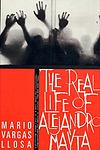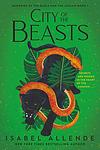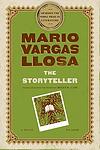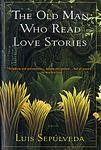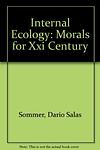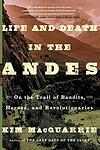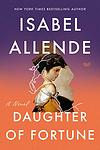The Greatest Chilean, Peruvian "Fiction" Books Since 1950
Click to learn how this list is calculated.
This list represents a comprehensive and trusted collection of the greatest books. Developed through a specialized algorithm, it brings together 300 'best of' book lists to form a definitive guide to the world's most acclaimed books. For those interested in how these books are chosen, additional details can be found on the rankings page.
Genres
Countries
Date Range
Reading Statistics
Click the button below to see how many of these books you've read!
Download
If you're interested in downloading this list as a CSV file for use in a spreadsheet application, you can easily do so by clicking the button below. Please note that to ensure a manageable file size and faster download, the CSV will include details for only the first 500 books.
Download-
1. The House of the Spirits by Isabel Allende
"The House of the Spirits" is a multi-generational saga that explores the lives of the Trueba family, set against the backdrop of political upheaval in an unnamed Latin American country. The narrative is driven by the family's strong and magical women, including clairvoyant Clara and her granddaughter Alba. The story spans over three generations, weaving together personal, social, and political threads, and is rich in elements of magical realism. The novel explores themes of love, violence, social class, and the struggle for power.
-
2. The Savage Detectives by Roberto Bolaño
"The Savage Detectives" is a novel that follows the lives of two Latin American poets, Arturo Belano and Ulises Lima, who are founders of a literary movement called "visceral realism." The book is divided into three parts and is narrated by multiple characters, providing different perspectives on the protagonists. The narrative spans over 20 years, following the poets' journey from Mexico City to Europe, Israel, and Africa, as they search for a mysterious poetess and navigate through the world of literature, sex, drugs, and the complexities of life.
-
3. 2666 by Roberto Bolaño
The novel is a sprawling, ambitious work that spans continents and time periods, centering around an elusive, reclusive German author. It intertwines five different narratives: a group of European academics searching for the author, a professor in Mexico dealing with his own personal crises, a New York reporter sent to cover a boxing match in Mexico, an African-American journalist in Detroit, and the horrifying and unsolved murders of hundreds of women in a Mexican border town. The narratives are linked by themes of violence, mystery, and the search for meaning in a chaotic world.
-
4. The War of the End of the World by Mario Vargas Llosa
The book is a historical novel that recounts the War of Canudos, a conflict in late 19th-century Brazil over religious fanaticism, political instability, and social inequality. The story is centered around an apocalyptic movement led by a charismatic, messianic figure who convinces the poor and downtrodden to rise up against the Brazilian government, leading to a brutal and bloody conflict. The book explores themes of faith, power, poverty, and the destructive potential of fervent belief.
-
5. Conversation in the Cathedral by Mario Vargas Llosa
Set in mid-20th century Peru, "Conversation in the Cathedral" is a complex narrative that explores the corruption, decay, and turmoil of the society under the dictatorial rule of Manuel A. Odria. The story mainly revolves around two characters - a wealthy newspaper owner's son and his family's former chauffeur. Their chance meeting leads to a lengthy conversation that unravels the intricate web of political and personal corruption, disillusionment, and lost dreams in their lives and in their country. The novel is a profound examination of the power dynamics, societal decay, and the human condition in a politically oppressive environment.
-
6. The Feast of the Goat: A Novel by Mario Vargas Llosa
"The Feast of the Goat" is a historical novel set in the Dominican Republic during the rule of dictator Rafael Trujillo. It follows the story of Urania Cabral, a successful lawyer returning to her homeland after 30 years of self-imposed exile, and her struggle to confront the traumatic past that led to her departure. The narrative alternates between Urania's personal story and the brutal regime of Trujillo, providing a stark depiction of political tyranny and its effects on individual lives.
-
7. The Time of the Hero by Mario Vargas Llosa
"The Time of the Hero" is a novel set in a military academy in Lima, Peru, where a group of cadets try to maintain their individuality and resist the dehumanizing military routine. The story revolves around a stolen exam paper, the ensuing investigation, and the brutal fallout. The novel explores themes of power, corruption, and the struggle for identity within a rigid and oppressive system, offering a critical look at the military institution and its effects on society.
-
8. Aunt Julia and the Scriptwriter by Mario Vargas Llosa
The novel is a semi-autobiographical tale of a young man in Peru who falls in love with his divorced aunt, Julia, while working at a radio station. Their scandalous romance unfolds amidst the backdrop of a chaotic radio station run by a brilliant but unstable Bolivian scriptwriter who churns out daily soap operas. The narrative alternates between the protagonist's real life and the melodramatic world created by the scriptwriter, blending reality and fiction in a humorous and poignant exploration of love and creativity.
-
9. Of Love and Shadows by Isabel Allende
Set against the backdrop of a South American country under a military dictatorship, this novel follows the story of a woman journalist and her lover, a photographer, who, while working together, uncover a hidden mass grave in a remote part of their country. Their discovery leads them into danger as they try to expose the truth about the brutal regime ruling their country, while also dealing with their own personal issues and their growing love for each other. The story is a blend of romance and political drama, showing the power of love and courage in the face of oppression and fear.
-
10. A World for Julius by Alfredo Bryce Echenique
"A World for Julius" follows the life of Julius, a young boy from a wealthy, aristocratic family in Peru. The novel is a biting social critique of the Peruvian upper classes, as seen through the eyes of Julius, who is often at odds with his family's values and lifestyle. The narrative explores themes of class, privilege, and the struggle for identity in a world dominated by wealth and social status.
-
11. Deep Rivers by José María Arguedas
"Deep Rivers" is a novel that follows the life of a young boy who is caught between the Spanish and indigenous cultures of Peru. The protagonist is sent to a Catholic boarding school, where he experiences the harsh realities of social and racial divisions within the country. As he navigates these challenging circumstances, he develops a deep connection with the indigenous Andean culture and its spiritual relationship with nature. The novel is a profound exploration of identity, culture, and the struggle of indigenous peoples in a colonized society.
-
12. La Brecha by Mercedes Valdivieso
"La Brecha" is a groundbreaking Chilean novel that delves into the life of a middle-class woman who, after years of conforming to traditional gender roles and a subservient position within her marriage, begins to question the societal norms that have long dictated her existence. As she becomes increasingly aware of the oppressive structures surrounding her, she embarks on a journey of self-discovery and liberation. The novel explores themes of feminism, identity, and personal freedom, challenging the status quo of the time and advocating for the empowerment of women to break free from the constraints imposed by a patriarchal society.
-
13. The Real Life of Alejandro Mayta by Mario Vargas Llosa
This novel revolves around a failed Peruvian revolution and the man who attempted to lead it, Alejandro Mayta. The story is told from the perspective of a novelist who is researching Mayta's life and the events surrounding the failed uprising. The narrative oscillates between the present and the past, unraveling the complex threads of Mayta's personal history, political beliefs, and the broader socio-political context of Peru. The novel explores themes of truth, fiction, and the blurry lines between them.
-
14. City of the Beasts by Isabel Allende
A 15-year-old boy is forced to move in with his eccentric grandmother after his mother falls ill. Together, they embark on a journey to the Amazon rainforest in search of a legendary, healing beast. Along the way, they encounter various challenges, including dangerous animals, harsh environments, and a group of indigenous people with mystical powers. The boy learns to overcome his fears and prejudices, forming a strong bond with the indigenous people and the rainforest itself.
-
15. The Storyteller by Mario Vargas Llosa
"The Storyteller" is a novel that explores the tension between modern civilization and indigenous culture. The narrative alternates between two perspectives: one of a successful documentary filmmaker in Italy who is haunted by his past in Peru, and the other of an indigenous storyteller from an Amazonian tribe. The filmmaker recalls his college friend, who was fascinated by the indigenous cultures of Peru and disappeared into the Amazon rainforest. As the story unfolds, it becomes increasingly apparent that the indigenous storyteller and the filmmaker's lost friend are one and the same. This revelation leads to a profound examination of the effects of cultural assimilation, the value of tradition, and the power of storytelling.
-
16. The Old Man Who Read Love Stories by Luis Sepúlveda
The book tells the story of an elderly man who, having settled in a remote Amazonian village, develops a passion for reading romance novels to escape the monotony of his daily life. His peaceful existence is disrupted when he is called upon to track down an ocelot that has been killing the local villagers' animals. As he ventures into the jungle, his journey becomes both a physical and emotional adventure, intertwining his love of literature with his deep respect for nature, and ultimately leading him to confront not only the wild cat but also the complexities of human nature and love.
-
17. Internal Ecology Morals For Xxi Century by Dario Salas Sommer
This book delves into the intricate relationship between individual moral development and the broader ecological balance of our planet, proposing that the environmental crises of the 21st century are deeply intertwined with the moral and ethical decay observed in contemporary society. The author argues that by fostering a deeper understanding of our internal ecology—our thoughts, emotions, and spiritual well-being—we can cultivate a more harmonious relationship with the external world. Through a blend of philosophical insight and practical guidance, the text invites readers to embark on a journey of personal transformation as a foundational step towards addressing the global environmental challenges of our time, emphasizing the critical role of individual responsibility and ethical conduct in shaping a sustainable future.
-
18. Death In Andes by Mario Vargas Llosa
"Death in the Andes" is a haunting and atmospheric novel set in the remote Andean village of Naccos, where two soldiers are sent to investigate the mysterious disappearance of three men. As they delve deeper into the village's secrets, they uncover a dark history of violence, political turmoil, and superstition. Blending elements of mystery, political commentary, and magical realism, this gripping tale explores the complexities of human nature and the impact of Peru's turbulent past on its present.
-
19. The Obscene Bird Of Night by José Donoso
This novel is a labyrinthine exploration of identity, madness, and the nature of reality, told through the fragmented narrative of a reclusive man who has lived his life in seclusion on a decrepit estate. As the protagonist delves into his past, he recounts his experiences among the deformed and the destitute, the aristocracy and the servants, while grappling with his own fears and illusions. The narrative weaves a tapestry of grotesque imagery, mythological allusions, and a collapsing social order, challenging the reader to distinguish between truth and fabrication in a world where the boundaries of sanity are blurred.
-
20. Distant Star by Roberto Bolaño
"Distant Star" is a chilling novel set in Chile following the 1973 coup that overthrew Salvador Allende. The story focuses on a character who uses his position as a member of the Chilean Air Force to commit heinous acts of violence. His fascination with poetry and aerial acrobatics is interwoven with his terrifying actions, creating a disconcerting contrast. The narrative explores the horrific realities of political upheaval, the fine line between art and brutality, and the long-lasting effects of trauma.
-
21. Death And The Maiden by Ariel Dorfman
In a post-dictatorship country, a former political prisoner, Paulina, encounters a man whom she believes to be her former torturer. She takes him captive and subjects him to a mock trial, seeking justice for the atrocities she endured. As the tension escalates, the play delves into themes of truth, revenge, and the complex aftermath of trauma, challenging the audience to question the blurred lines between victim and perpetrator in a society grappling with its dark past.
-
22. Daughter Of Fortune by Isabel Allende
This novel is a sweeping tale of love, adventure, and discovery set against the backdrop of the California Gold Rush. It follows the journey of a young orphan raised in the British colony of Valparaíso, Chile, who embarks on a daring quest to find her lover in the goldfields of California. Along the way, she transforms from a naive girl into a strong and independent woman, encountering a diverse cast of characters who shape her destiny. The story delves into themes of freedom, identity, and the pursuit of fortune, offering a rich exploration of historical events through the eyes of a determined protagonist seeking her place in a rapidly changing world.
-
23. The Bad Girl by Mario Vargas Llosa
The novel follows the life of Ricardo Somocurcio, a man from Lima, Peru, who becomes infatuated with a mysterious girl he meets in his youth. This girl, who constantly reinvents her identity, reappears throughout his life in various guises and names, leading him on a tumultuous and passionate journey that spans continents and decades. As Ricardo pursues a career as a translator and moves through different countries, he encounters the enigmatic woman in various circumstances, each time falling under her spell despite the pain and complexity she brings into his life. The story is a reflection on love, obsession, and the transformative power of relationships over time.
-
24. Trust by Hernán Díaz
"Trust" by Hernán Díaz is a novel that follows the journey of a young man named Rafael, who leaves his home in Mexico to pursue the American Dream in the 19th century. Rafael's journey takes him through the Wild West, where he encounters a diverse cast of characters and faces numerous challenges. Along the way, he learns about the complexities of trust and betrayal, and ultimately discovers the true meaning of home and belonging. The novel is a poignant exploration of identity, immigration, and the American experience.
-
25. Eva Luna by Isabel Allende
"Eva Luna" is a magical realism novel that tells the story of the eponymous protagonist, an orphaned girl in a South American country who uses her gift of storytelling to navigate through life. As she grows, she becomes a servant, a lover, and a revolutionary, always using her stories to bring comfort, provoke thought, and incite change. The narrative is a rich tapestry of characters, politics, and history, all woven together with a touch of the fantastical.
Reading Statistics
Click the button below to see how many of these books you've read!
Download
If you're interested in downloading this list as a CSV file for use in a spreadsheet application, you can easily do so by clicking the button below. Please note that to ensure a manageable file size and faster download, the CSV will include details for only the first 500 books.
Download











